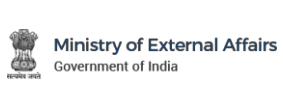Keynote Address by Ambassador Ronen Sen at the Conference on Future Direction of India's Foreign Policy organized by the Center for Advanced Study of India (CASI) of the University of Pennsylvania at Philadelphia
Philadelphia
April 18, 2008
CASI International Advisory Board Chairman Marshall Bouton,
Dean Rebecca Bushnell,
Dr. Devesh Kapoor,
Ladies and Gentlemen,
It is a privilege for me to speak at this great university at a conference on future directions of India’s foreign policy. Even in the context of the growing scholarship and research on India, the Centre for Advanced Study of India (CASI) of the University of Pennsylvania occupies a special position and performs a very important task of promoting better understanding of India in the United States. The agenda of this conference and the list of distinguished participants is just one manifestation of the high quality of work and the reputation of CASI; a reputation which owes much to Dr. Francine Frankel, Dr. Devesh Kapoor and their colleagues.
On this occasion, I would like to acknowledge, with deep respect and gratitude, the contributions of Professor Robert F. Goheen, President Emeritus of Princeton University, and the Chairman Emeritus of CASI’s International Advisory Board, who passed away just about a fortnight ago on March 31. Professor Goheen returned to India, the land of his birth and childhood, to serve as the Ambassador of the United States from 1977 to 1980. This was a challenging period in our bilateral relations, as was evident from my own experience at that time at the Department of Atomic Energy. Ambassador Goheen’s abiding love for India was matched by a strong conviction in India’s relevance to the future of the world. This conference on the future of India’s foreign policy would undoubtedly have been of great interest to him – as it is, no doubt, for a growing number of people in this country and elsewhere.
India is in transition in a changing world. Its engagement with the world is also evolving and changing. India’s primary objective is to promote sustainable and equitable economic growth, harness the creative energies and meet the growing aspirations of a demographically young India.
The progress of the world’s second largest population will create enormous new economic opportunities for the world. It will also generate ever-increasing demand for resources such as energy. As India grows into one of the three largest economies of the world, the course of its development would be of global significance. In turn, as India becomes increasingly integrated with the global economy, international developments will correspondingly have greater impact on its own future.
India’s growth and its rising global profile will not be at the cost of other countries. Its growth will be propelled not exclusively, or even primarily, by its exports, but by growing domestic demand. India’s growth will not be disruptive. It will, on the contrary, be a locomotive of growth for Asia and beyond.
India’s success will also be a major positive and stabilizing factor in a global geo-political perspective. Its success will stand as an affirmation of the universal values of liberty, democracy, pluralism and freedom of enterprise. India’s interests will remain anchored in a stable global order, a peaceful neighbourhood, an open and equitable international trading regime, secure and affordable energy supplies, food security and preserving the environment for future generations.
The global environment offers new challenges and hopes. We believe that the possibilities for global cooperation in this crucial area far exceed the potential for division. We will do our best to create global consensus on strategies for exploiting the collective opportunities and addressing the shared vulnerabilities that globalization brings.
We are conscious of the danger of nations being unable to rise above and reach across their diverse perspectives, by recognizing differing circumstances and varying abilities to find a common way forward on issues like trade, energy security and climate change. The competition for resources could present new challenges to international cooperation. There are differences on how to respond to issues of governance, democracy and political crises. There is growing recognition that no single country, or group of countries, can effectively tackle any major global threat or challenge. At the same time, international political, security and even economic institutions are not as effective as they should be since they do not reflect the realities of the present or the imperatives of the future.
India is at the crossroads of Asia’s religions, cultures and ethnicities. West, Central, South, East and Southeast Asia converge at our borders. We are a bridge across Asia’s great diversity; but our location also exposes us to many of its fault lines. The growing fissures, in the name of religions and cultures, have disturbing implications for India’s pluralism and social harmony. The hub of violent extremism in our neighbourhood remains a challenge for us, and for the world. We are located in the arch of proliferation that has irrevocably altered our, and global, security perspectives. The implications of the intersection of proliferation, religious extremism, terrorism, and unstable regimes are not yet fully realized. The sea-lanes of communications around India are the arteries of global commerce and energy supply.
In our immediate neighbourhood, countries all around us are in varying degrees of political transitions. The process of these transitions will inevitably have a direct impact on us, in terms of our economy, security and socio-political stability. We are encouraged by the successful conduct of democratic elections in Pakistan, Bhutan and Nepal and hope for the consolidation and strengthening of democratic institutions in these countries. Among Indian aided projects in Afghanistan is the construction of the new National Assembly in Kabul.
We understand that a proactive and vigorous pursuit of foreign policy is not a matter of choice, but an inescapable necessity for securing India’s political, security and economic interests in a world shaped by globalization, inter-dependence, inter-connectedness and rapid changes. The rapid improvement in global connectivity has opened new possibilities to reach out to the world. And we recognize that this process must begin in our neighbourhood.
A peaceful, stable and prosperous periphery is indispensable for us. Breaking through the insularity of the past, we are seeking security and shared prosperity through increased connectivity in the Indian sub-continent. We seek to create regional stakes in our economic growth, and to cooperate, whenever asked, in dealing with political transitions and economic development. India will obviously gain from the spread of democracy. We will continue to encourage but not seek to engineer or impose transitions to democracy in our region or elsewhere.
China is our largest neighbour. We accept and deal with certain complexities in the relationship. We also face some common challenges. We recognize and seek to increasingly benefit from the opportunities for constructive cooperation. China will soon become India’s largest trading partner.
An area of growing importance in the coming years would be fostering regional cooperation in water, energy and environment, where we will all have to seek radically new mechanisms of cooperation.
India is seeking to re-energize its engagement in and rebuild its relations and role in West Asia. Engagement with Central Asia will be a growing priority for India in the coming years. Individually with each country, and institutionally through participation in the ASEAN-India and East Asia Summits, we are expanding the frontiers of economic and political engagement with South-East and East Asia. With Japan, our economic ties are expanding into a strategic partnership. We see great promise in the future of India-Japan cooperation.
We have opened a new chapter in our relations with Africa, with an India-Africa Summit held earlier this month in Delhi. We have offered duty free and preferential access to 50 LDC countries, 34 of which are in Africa, and soft credit exceeding $5 billion.
Our President’s first foreign trip, taking place this week, is to Latin America, symbolizing the significance of the region for us. We are also connecting to the region through the initiative of the India, Brazil and South Africa (IBSA) forum.
It is a measure of our engagement with major powers that in a single month of January this year, we had summit meetings with China, France and the United Kingdom. We had a recent summit meeting with our traditional friend, Russia. Having had diplomatic assignments in Moscow in the 60s, 70s, 80s, and as a long-serving Ambassador to Russia in the 90s, I can testify to the great importance of our traditional friendship with that country. As India’s envoy in Germany and the United Kingdom, I am aware of the major significance of our summit level dialogue with the European Union.
During the last three and a half years of my current assignment I am glad to witness the irrevocable transformation of our relations with the United States. In addition to the rapid growth of two-way trade and investment, cooperation in education and science and technology, the governments in both countries have invested significant political capital in building a strategic partnership based on shared values and common concerns. India-US relations encompass the most wide-ranging engagement that India has with any country today.
India is approaching the international dimensions of its energy security with a sense of urgency. We are diversifying the sources of our imports, investing in oil and gas assets abroad and building new technology partnerships for clean and renewable energy sources, and for solutions to the problems of global warming.
The challenge of terrorism will confront the world for some time to come. Therefore, advancing international cooperation in combating it will continue to receive our unremitting attention.
India will continue to seek an adjustment in the global political and security architecture that will enable it to fulfill its aspirations and allow it to play the role that the world increasingly expects from our country. UN reforms, in particular of the UN Security Council, are inevitable.
For too long, India, a proponent and adherent of nuclear non-proliferation, itself was treated as a target of international instruments to prevent proliferation of nuclear weapons and their delivery systems, notwithstanding the fact that India’s system of controls over nuclear material, equipment and technology were perhaps the most effective in the world. We are now engaged in a major endeavour, primarily in cooperation with the United States, on correcting this historical anomaly.
It is a more secure and self-assured India that is engaging the world today. India’s interests will define its engagement, but, as in the past, its policies will continue to be founded on values and principles that are rooted in the moral and philosophical foundations of our society, in independent India’s birth and our commitment to democracy and pluralism.
India will increasingly seek to shape its environment and not merely react to events. But we will continue to pursue the path of diplomacy and dialogue. India will be capable of defending itself against a broad range of potential threats, but will not seek a path of confrontation and conflict.
India’s traditional belief in independence of thought and action will remain. We will, however, not be unilateralist or isolationist. Our preference for multilateralism will remain. But we will also work with like-minded countries, like the United States, in pursuit of shared objectives, as we did in setting up the Community of Democracies or responding to natural disasters like the tsunami in 2004, and pandemics.
As Indians increasingly live, trade and invest abroad, securing their rights and protecting their interests will become an increasingly important dimension to our foreign policy.
The formulation of foreign policy in India is also becoming increasingly complex. This is not merely because of the rapid pace of change and diffusion of information, but also because of integration of foreign policy with security strategies and economic engagement in a manner not seen before. It is, with each passing year, becoming increasingly untenable to separate or compartmentalize domestic and foreign policies. India’s economic development and the use of high technologies to transform the lives of our people will be impossible without international cooperation and greater integration with the global economy. India’s rapid economic growth, like that of any fast growing developing country, has been linked to the degree of its global integration. A decade ago, when foreign trade constituted less than a quarter of our GDP, we were relatively unaffected by the Asian financial crisis. Today, when foreign trade accounts for over half of our national GDP, and Indian companies are emerging as global players, it will be naïve to expect that India can insulate itself from global economic changes or for that matter, geopolitical trends.
The geo-political maps in Asia, Europe and elsewhere have changed beyond recognition and so have economic realities. We need to understand the changed topography. In fact, we need new perspectives and a new compass to find our bearings in the changing world. Whether the traditional national consensus in India on our foreign policy will evolve and hold, or elude us for some time, will depend on the degree to which the challenges and opportunities of the changed realities are recognized across the political spectrum in our country. I am confident that such a consensus will emerge when perceptions and realities intersect in our collective consciousness, as it is bound to happen sooner or later.







